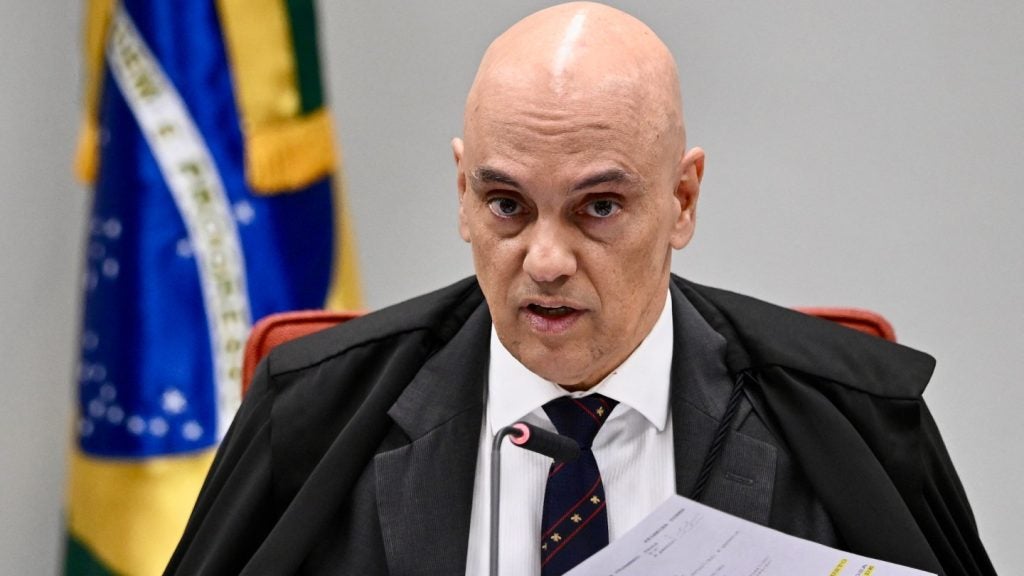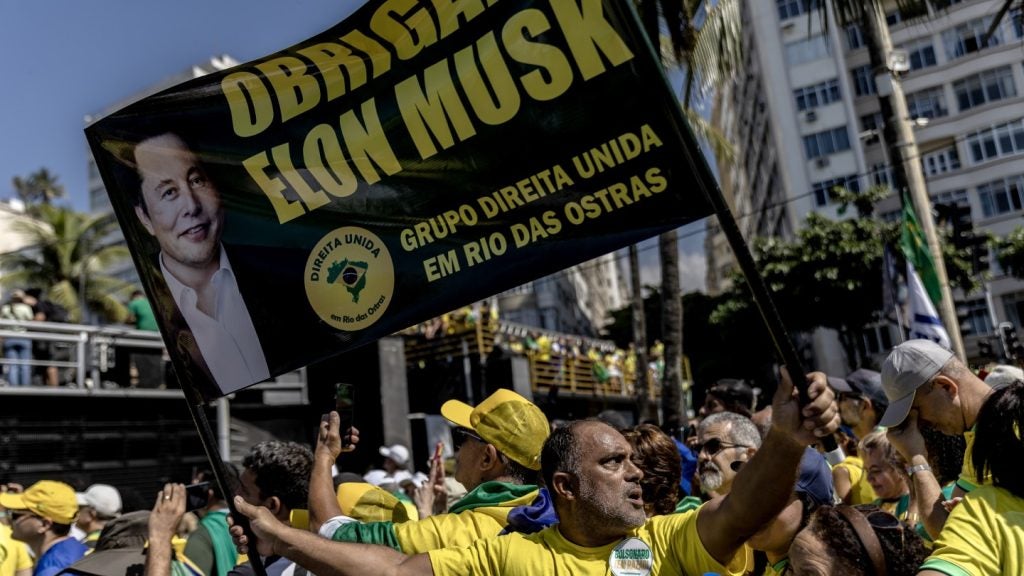Elon Musk’s X currently finds itself in the crosshairs of an unprecedented number of governments.
Caught between the restrictions of authoritarian regimes and the investigations of democratic countries, X has found itself blocked to some extent or other by 37 countries since 2015.
Unperturbed, Musk continues to clash with heads of state, from Venezuela’s ‘digital authoritarian’ election-fraud President Nicolás Maduro, to recently elected UK Prime Minister Keir Starmer amid a surge of far-right riots.
Musk has thrown down his latest gauntlet to Brazil – specifically to Supreme Court judge Alexandre de Moraes rather than President Luiz Inácio Lula da Silva.
Two weeks ago, X closed its Brazil office after Moraes ordered a block on accounts accused of spreading misinformation. Many were supporters of former right-wing President Jair Bolsonaro, the BBC reported.
Aside from issuing fines of R$100,000 ($19,774) a day for any account that X reactivated, Moraes also put Musk under investigation for charges including obstruction of justice. In a statement, X accused Moraes of “censorship orders” and said his actions were “incompatible with democratic government”.
Moraes’ investigation is ongoing, and Brazilians are still able to access X – but for how much longer is not certain.
Brazil has “historical precedents” of social media restrictions
While “the platform continues to operate in Brazil”, there is still a “significant” possibility of Brasilia blocking access to X in the coming days or weeks, according to Lina Survila, spokesperson at cybersecurity firm Surfshark, which runs an internet shutdown tracker.
“It’s challenging to predict whether the Brazilian government or Supreme Court will block X, but the possibility remains significant,” Survila tells Verdict. “Historical precedents, such as the temporary blocking of WhatsApp and Telegram, demonstrate that Brazil’s legal framework does permit the restriction of social media platforms that fail to comply with local content moderation laws. If X is perceived as contributing to political instability, a government-imposed block could be a potential outcome.”

Brazil’s five previous internet restrictions were all imposed on Telegram or WhatsApp, with an average duration of 32 hours, according to Surfshark’s tracker.
X has not yet been disrupted in Brazil. Russia, China, Iran, Pakistan, Myanmar, North Korea, Venezuela and Turkmenistan are the eight countries currently restricting Musk’s platform.
These authoritarian regimes form one group of countries which have largely imposed blanket bans on X and other social media platforms “to restrict access to a free internet to preserve their power and the status quo”, according to Laura Petrone, senior thematic analyst at GlobalData. “China, Russia, Iran and other authoritarian countries view them as a potential source of dissent.”
The fine line between “moderation and censorship”
Over the last five years, at least 46 governments have imposed restrictions on social media or messaging apps, averaging out at 13 cases each year. These mostly come during periods of political turmoil such as the protests against Kenya’s controversial finance bill at the end of June.
Petrone also points to Musk’s purported claim that ‘freedom of speech’ is the overarching raison d’être of social media – and for the lack of regulation on X.
“Musk’s freedom of speech approach to social media is increasingly at odds with the rules of democratic countries, as in the case of the EU, which has opened an investigation on X, along with Meta and TikTok, for violating the Digital Services Act,” Petrone tells Verdict. “This is an attempt by Brussels and other countries like the UK to hold social media companies accountable for the content they publish on their platforms and to ensure a safe internet for the most vulnerable users.”
When Musk took over X (then Twitter) in October 2022, he decided to lay off almost half of the platform’s employees, including many of the outsourced content moderators who tracked abuse.
There has since been a drastic – and measured – spike in hateful language, violent videos and polarising content on X.
Reports also emerged last week that X, Telegram and other social media platforms are being used by at least 68 Yemeni arms dealers to advertise weapons for sale. Telegram’s co-founder Pavel Durov was subsequently arrested for failing to block illicit transactions, child sexual abuse and fraudulent content.
“As X relaxes its moderation policies, cases like this [with Brazil’s Supreme Court] will become more common,” Petrone predicts. “The big dilemma for each country is to decide what the minimum level of moderation required from social media companies is and what the boundaries between moderation and censorship are.”









